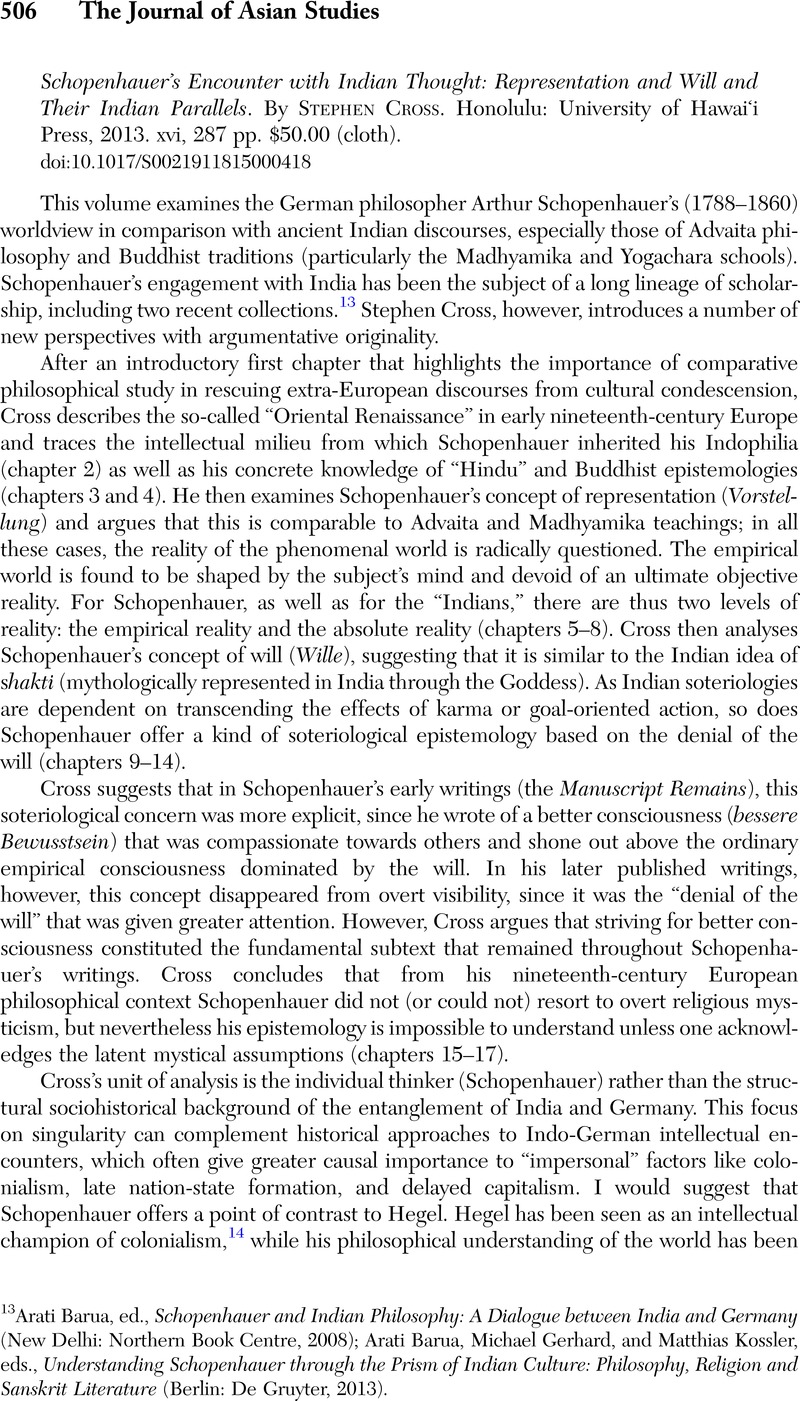No CrossRef data available.
Published online by Cambridge University Press: 27 May 2015

13 Barua, Arati, ed., Schopenhauer and Indian Philosophy: A Dialogue between India and Germany (New Delhi: Northern Book Centre, 2008)Google Scholar; Barua, Arati, Gerhard, Michael, and Kossler, Matthias, eds., Understanding Schopenhauer through the Prism of Indian Culture: Philosophy, Religion and Sanskrit Literature (Berlin: De Gruyter, 2013).Google Scholar
14 Guha, Ranajit, History at the Limit of World-History (New York: Columbia University Press, 2002)Google Scholar.
15 Sartori, Andrew, “Beyond Culture-Contact and Colonial Discourse: ‘Germanism’ in Colonial Bengal,” Modern Intellectual History 4, no. 1 (2007): 77–93.CrossRefGoogle Scholar
16 Sister Nivedita, “Reminiscences of Swami Vivekananda,” Prabuddha Bharata (1935), http://www.ramakrishnavivekananda.info/reminiscences/269_sn.htm (accessed February 5, 2015).
17 Cross's comparison takes a cue from Piantelli, Mario, “La Maya nelle Upanisad di Schopenhauer” (Maya in the Upanishads of Schopenhauer), Annuario Filosofico 2 (1986): 163–207.Google Scholar